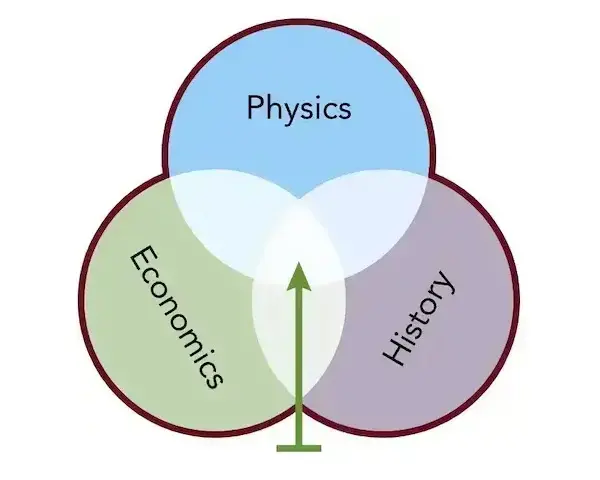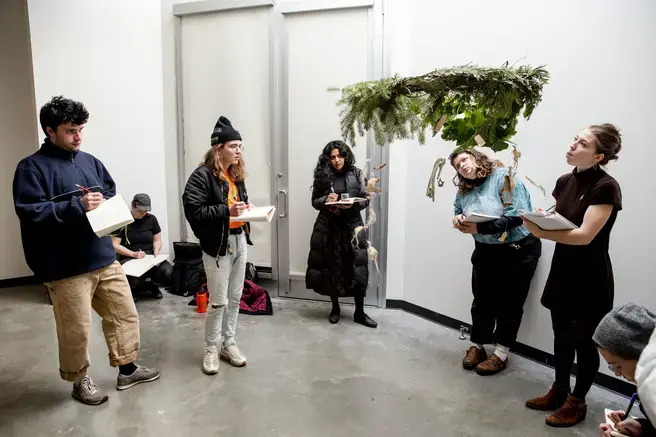"Can I really take one class?" Yes!
A program consists of 8-16 credits and integrates multiple different subjects. Rather than explore topics individually, you explore topics through an interdisciplinary lens, meaning that you will explore a central idea or theme through many different subjects.
Individual single-subject courses of 2-6 credits are available to take individually or to supplement and complement what you are studying in your program.

How it Works
- Each year we create a fresh, topical and engaging curriculum.
- Faculty members from different subject areas often teach programs in teams and draw on their separate disciplines to help you develop tools to navigate real life issues.
- Many programs last multiple quarters, building on themes developed in previous quarters.
- Programs often last two to three quarters.
- You’ll work in an atmosphere of shared learning.
- You may take additional single subject courses on various topics.

Example of an Evergreen Program
In this example program, Earth Dynamics asks how humans have changed local environments and large-scale global processes. This program covers all the same subjects as a traditional education that offers multiple separate courses, but also deeply explores how the individual subjects connect to one another and the layers of that connection.
Become a Changemaker
The Changemaker Lab is a space for students interested in entrepreneurship.
A Week in the Life
Evergreen programs create a balance between modes of learning. Programs can include lectures, labs, readings, seminars, field study and research projects.
You’ll stay engaged as you build familiarity within the disciplines you study. You’ll have time to work on collaborative projects with other students and may also feature special activities like field trips.
Examples of what your week might look like in one full-time 16-credit program:
First-Year Environmental Studies Program
| Monday | Tuesday | Wednesday | Thursday | Friday |
| Day off | 9:30 am - 12:30 pm Lecture and workshop |
10 am - 1 pm Lecture |
9 am - 12 pm Laboratory |
10 am - 12 pm Quantitative methods |
|
12:30 - 1:30 pm |
1 - 2 pm Lunch with friends |
12 - 1 pm Lunch with friends |
12 - 1 pm Event on Red Square |
|
| 1 - 4 pm Club fair |
1:30 pm - 3 pm Book seminar |
1 - 3 pm Study at the Library |
1 - 3 pm |
1 - 3 pm |
Humanities Language Program
| Monday | Tuesday | Wednesday | Thursday | Friday |
| 9 am - 12 pm Lecture |
9 am - 12 pm Book seminar |
9 am - 12 pm Lecture and workshop |
9 am - 2 pm Conversation groups |
Museum field trip |
| 1 - 2 pm Lunch with friends |
1 - 2 pm |
1 - 2 pm Lunch with friends |
12 - 1 pm Lunch with friends |
|
| 1 - 3 pm Language instruction |
1 - 3 pm Language instruction |
1 - 5 pm Language instruction |
4 pm |
6 - 8 pm |
Single-Subject Courses
Evergreen offers a variety of single-subject courses each quarter that are available to all students. Single-subject courses range from 2-6 credits and cover one topic or subject area taught by a single faculty member.
Single-subject courses are offered on a flexible schedule including evenings, weekends and online. These courses are ideal for students who want to dig deep into a particular topic and are great for supplementing your credit load if you need extra credits.
